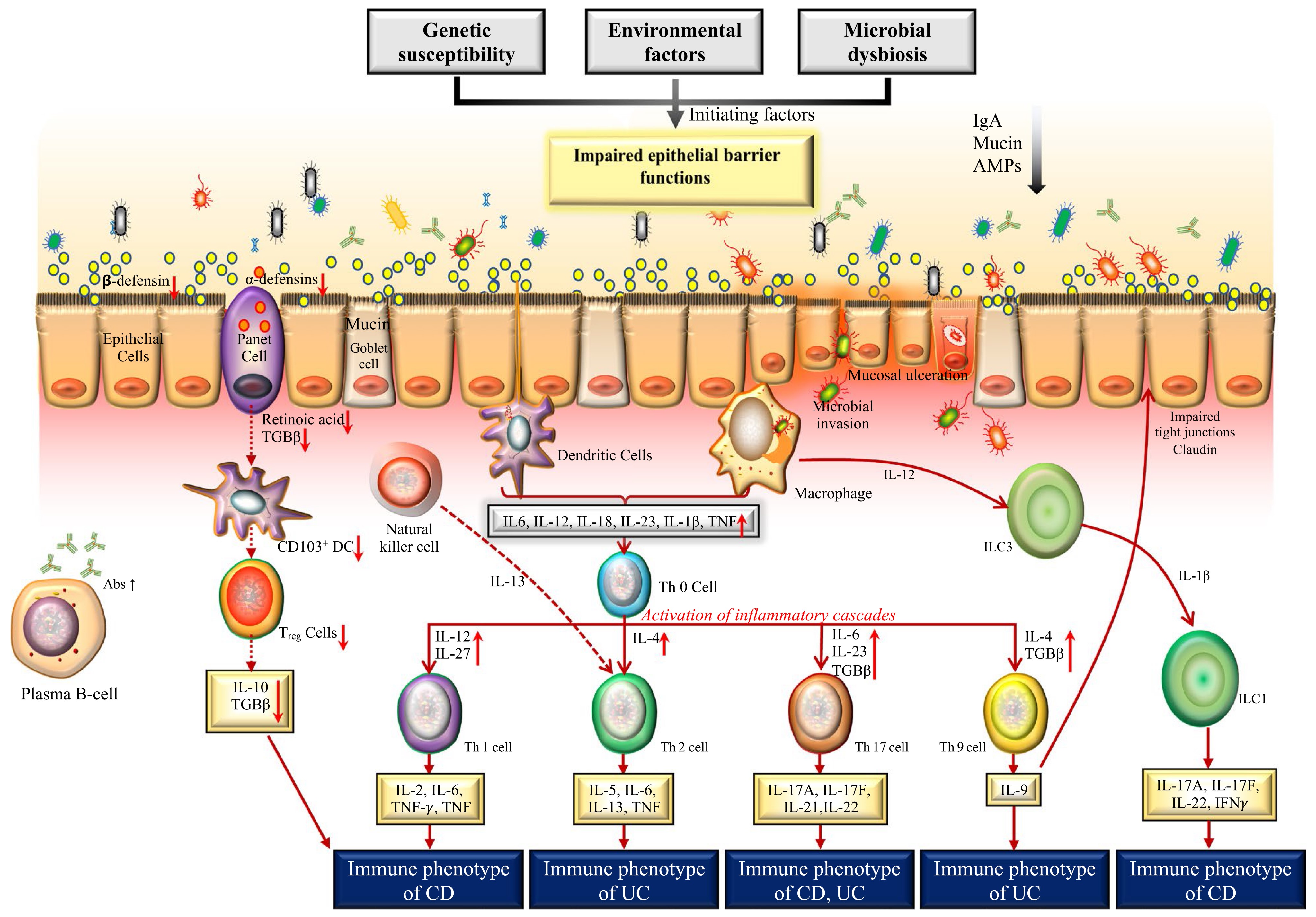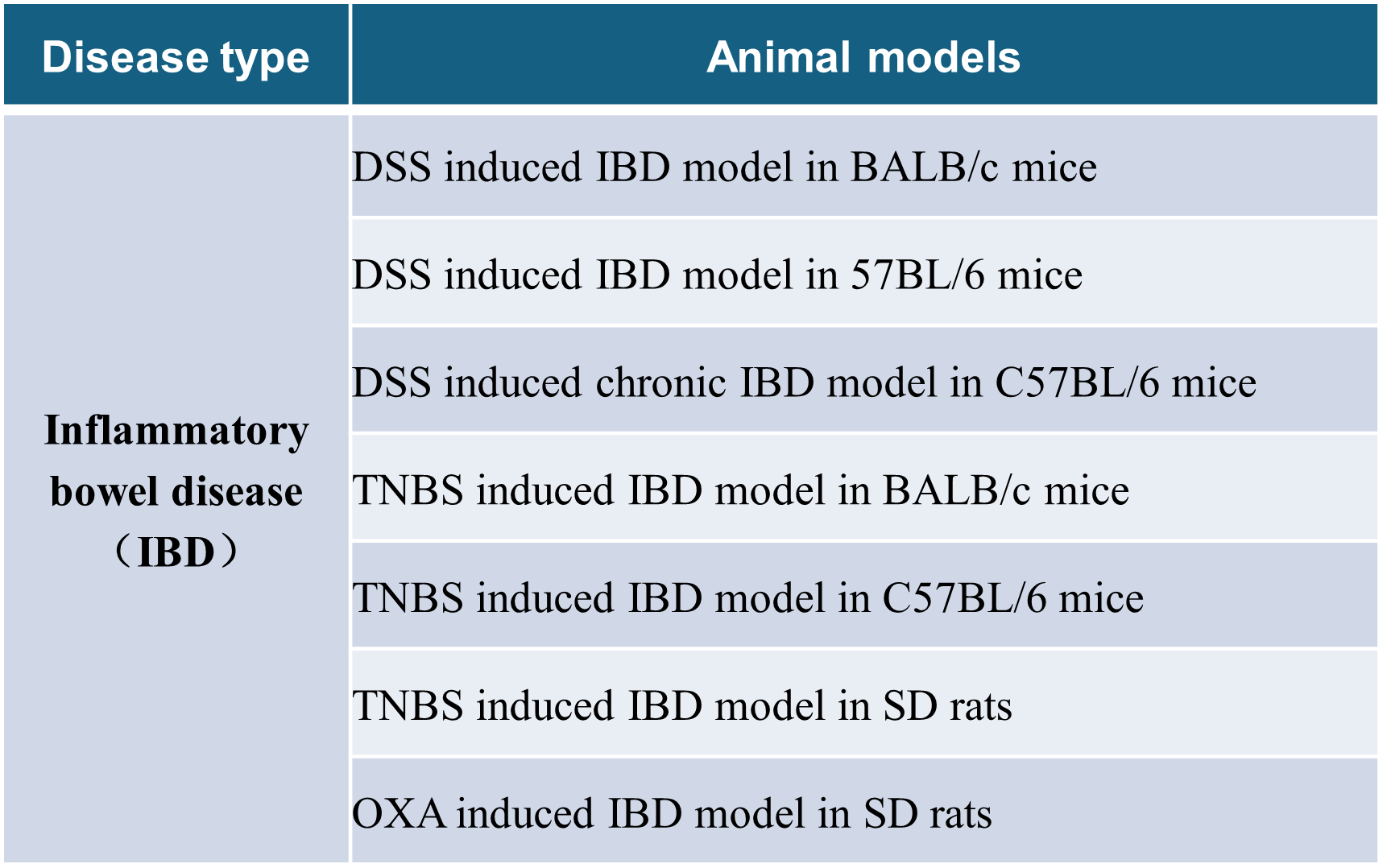Inflammatory bowel disease
Inflammatory bowel disease (IBD) is a class of chronic, idiopathic gastrointestinal intractable diseases, involving the ileum, rectum and colon. clinical manifestations of IBD includes diarrhea, abdominal pain, and even bloody stools. IBD usually can divide into two subtypes as ulcerative colitis (UC) and Crohn's disease (CD). UC is a continuous inflammation of the mucosal and submucosal layers of the colon, usually involving the rectum first and gradually spreading to the whole colon; CD can involve the whole digestive tract and is a non-continuous inflammation of the whole layer, most often involving the terminal ileum, colon and perianal area. Immunity, genetics, environment, and microorganisms are generally considered as the four major triggers of IBD.
IBD has a recurrent course, is difficult to treat, and occurs in young adults.
Activation of Th2 and Th17 cells and their related inflammatory factors is associated with UC pathogenesis.
Activation of Th1 and Th17 cells and their related inflammatory factors is associated with CD pathogenesis.
Treg cells, innate lymphoid cells, and B cells are involved in the immunological process of IBD.

Kumar et al., J Transl Med, 2019, 17:419.
IBD animal model
